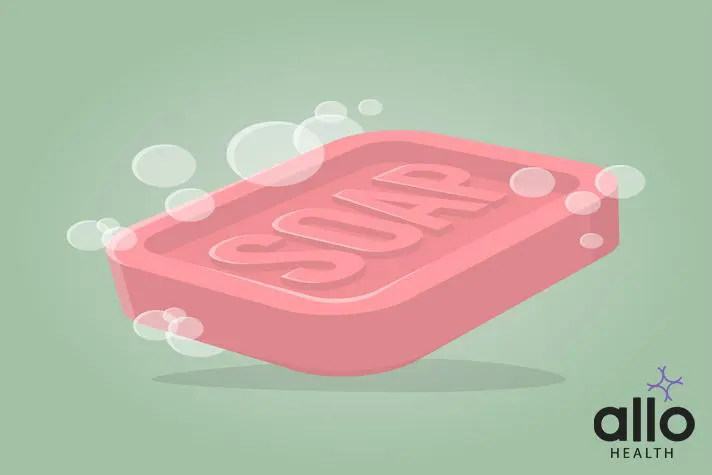Soap and Sperm: Debunking the Myth
Many people wonder whether using soap as a contraceptive method is effective. The short answer is, no, soap does not kill sperm. While soap has qualities that allow it to cleanse and eliminate germs from the skin, it does not possess the ability to kill sperm cells.

The Truth About Sperm Survival
Sperm cells are remarkably resilient. When they are released into the vaginal canal, they can survive for up to five days. This is due to the protective environment within the female reproductive system, where the cervical mucus acts as a barrier and safeguards the sperm from external factors.
The temperature, moisture, and pH levels in the vagina are ideal for sperm survival. This protective environment is intended to support fertilization, ensuring the best chances of conception during ovulation.
Contraception: Reliable Options
If soap is not a reliable method of contraception, what alternatives are available? Here are a few effective options:
1. Barrier Methods
Barrier methods, such as condoms or diaphragms, are an excellent way to prevent pregnancy. These physical barriers prevent sperm from reaching the egg during intercourse and also provide protection against sexually transmitted infections (STIs).
2. Hormonal Methods
Hormonal methods include various forms of birth control, such as birth control pills, patches, injections, or intrauterine devices (IUDs). These methods alter hormonal levels to prevent the release of eggs, thinning the uterine lining, or thickening cervical mucus to impede sperm movement.
3. Surgical Sterilization
For those seeking a more permanent form of contraception, surgical sterilization methods such as vasectomy for males or tubal ligation for females are available. These procedures permanently block sperm or egg transportation, making pregnancy highly unlikely.
Conclusion
In summary, soap does not kill sperm. It is essential to understand that using soap as a contraceptive method is ineffective and unreliable. To prevent pregnancy, it is vital to choose appropriate contraception methods. Consult your healthcare provider to discuss which option suits you best based on your individual needs and circumstances.
Remember, accurate knowledge about contraception methods empowers you to make informed decisions about your sexual and reproductive health. Stay educated and prioritize safe practices to ensure your well-being!
Related FAQs about does soap kill sperm
Can soap be used as a contraceptive method?
No, soap cannot be used as a reliable contraceptive method. It does not possess the ability to kill sperm cells.
How long can sperm survive inside the female reproductive system?
Sperm cells can survive inside the female reproductive system for up to five days.
What are some effective contraception options?
Effective contraception options include barrier methods (condoms, diaphragms), hormonal methods (birth control pills, patches, injections, IUDs), and surgical sterilization (vasectomy, tubal ligation).
Do alternative methods, such as douching or vinegar, kill sperm?
No, alternative methods like douching or vinegar do not possess spermicidal properties. These methods are ineffective at killing sperm and preventing pregnancy.
Is consulting a healthcare provider important for choosing the right contraception method?
Yes, consulting a healthcare provider is essential for selecting the most suitable contraception method based on individual needs and circumstances. They can provide accurate information and guidance to help make informed decisions about reproductive health.
Glossary about does soap kill sperm
1. Sperm: Sperm refers to the male reproductive cells involved in sexual reproduction. They are produced in the testes and are responsible for fertilizing the female egg.
2. Contraceptive: A contraceptive is a method or device used to prevent pregnancy by blocking or reducing the chances of fertilization or implantation of the fertilized egg.
3. Barrier Methods: Barrier methods are contraceptive techniques that create a physical barrier between sperm and eggs to prevent fertilization. Examples include condoms and diaphragms.
4. Birth Control Pills: Birth control pills are hormonal contraceptive pills that women can take daily to prevent pregnancy. They contain synthetic hormones that prevent ovulation.
5. Intrauterine Device (IUD): An intrauterine device (IUD) is a small contraceptive device that is inserted into the uterus to prevent pregnancy. It can be hormonal or non-hormonal.
6. Sterilization: Sterilization is a surgical procedure that permanently prevents an individual from being able to conceive or impregnate. It is considered a permanent form of contraception.
7. Vasectomy: Vasectomy is a surgical procedure for male sterilization. It involves cutting or blocking the vas deferens, the tubes that carry sperm from the testes to the urethra.
8. Tubal Ligation: Tubal ligation is a surgical procedure for female sterilization. It involves blocking or sealing the fallopian tubes, preventing eggs from reaching the uterus for fertilization.
9. Sexually Transmitted Infections (STIs): Sexually transmitted infections (STIs) are infections that are primarily spread through sexual contact. They can be caused by bacteria, viruses, or parasites.
10. Ovulation: Ovulation refers to the release of an egg from the ovary during a woman's menstrual cycle. It is the period when a woman is most fertile and can conceive.
